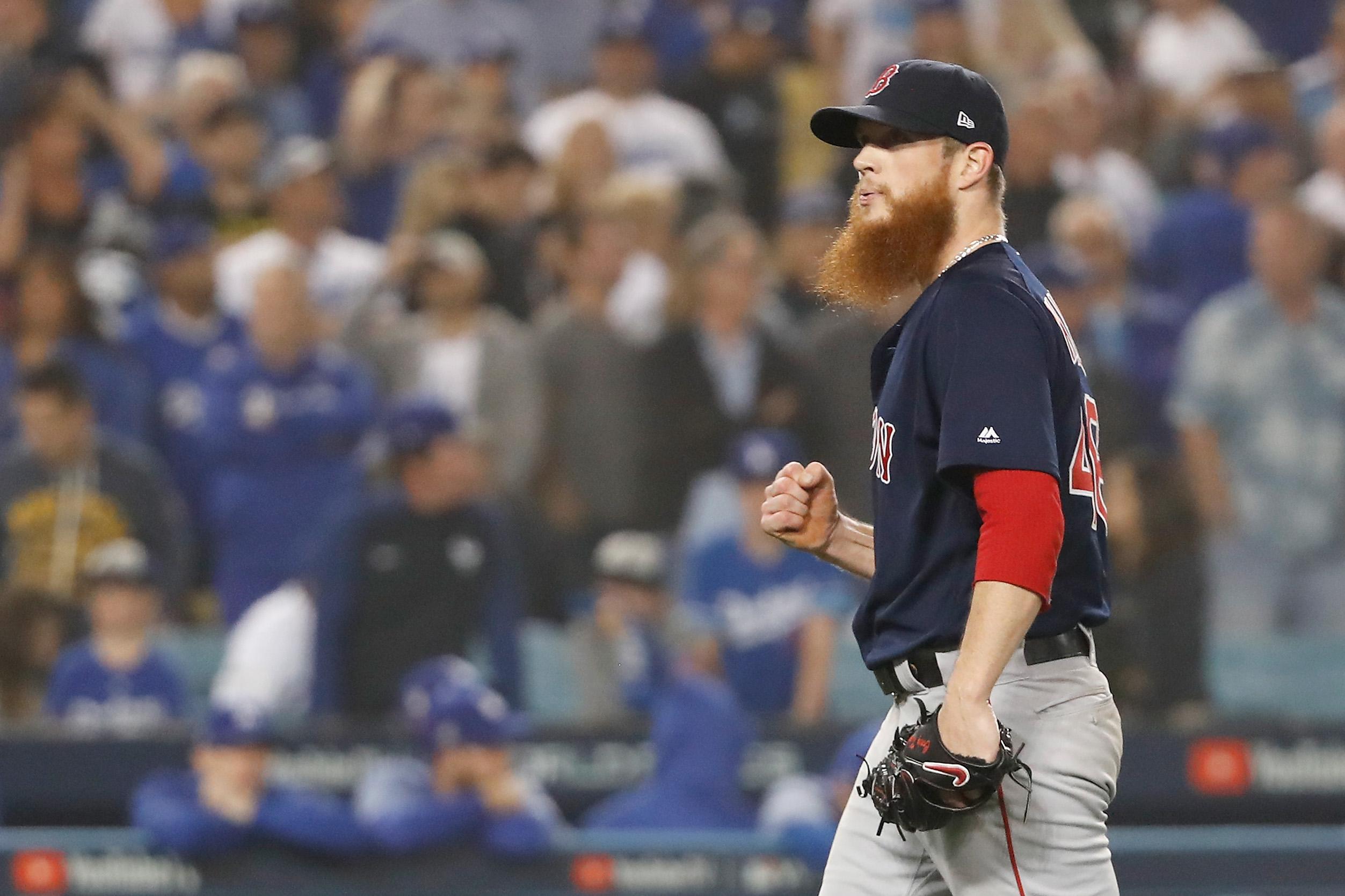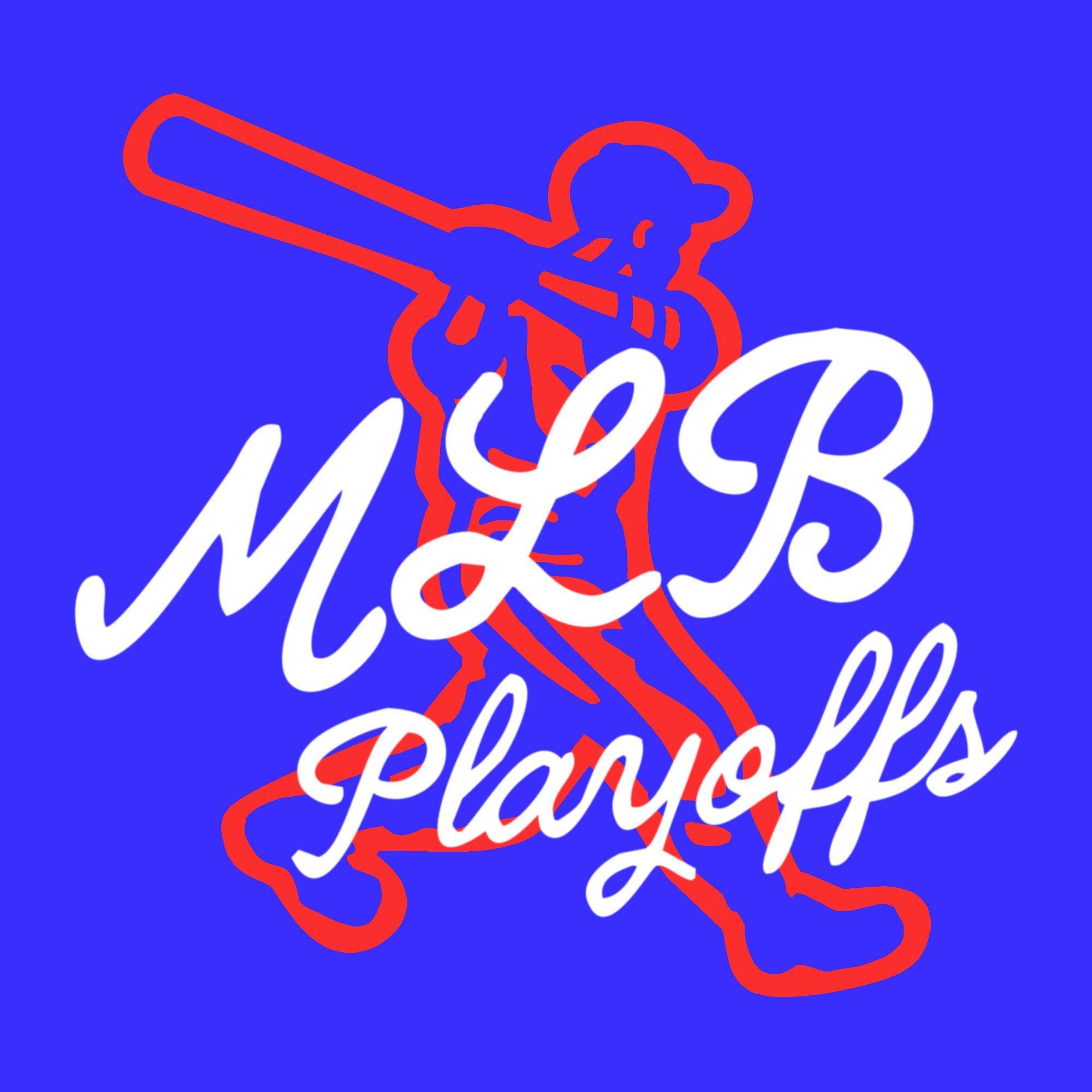
In Game 4, it was Boston’s turn. After the Dodgers won a Game 3 classic, complete with a bizarre comeback and late-inning heroics, Boston returned the favor in kind on Saturday night. And now, after erasing a 4-0 deficit, triggering another Kenley Jansen blown save, and emerging with a crushing 9-6 victory, the Red Sox are just one win away from their fourth World Series title in 15 years.
The Dodgers, meanwhile, are left to wonder what could have been. All the pieces were aligned to force a series tie and move them one step closer to their first title in 30 years. They received a phenomenal Rich Hill start, a run-scoring gift of a Red Sox error, and a potentially iconic Yasiel Puig home run, and they led by four runs with just seven outs to go to knot the series at 2-2, with another Clayton Kershaw vs. Chris Sale showdown set for Sunday’s Game 5. Instead, they’re left with a presumably insurmountable series deficit, and they’ll need to beat Boston three consecutive times, including twice on the road.
L.A.’s initial success on Saturday began with Hill, one of only two Dodgers who didn’t appear in the previous night’s 18-inning marathon. The veteran lefty offers a singular experience on the mound, mainly because he acts like the baseball world’s greatest grouch whenever he pitches. Hill is a grump, plain and simple; he’s surly and sweaty and supremely expressive—usually with an eye roll or bemoaned shrug—and he grunts like a tennis player deep in a third-set tiebreak. The Justin Verlanders and Max Scherzers of the pitching world rarely exhibit any effort on the mound, making 100 mph on their 100th pitch of the night look as routine as their first throw; Hill evinces the stress, the very physical part of this physical act he does for a living, with every pitch—all the while looking like a dad stuck waiting at a restaurant that messed up his to-go order.
But when Hill is throwing well, he is untouchable—seven innings of a perfect game here, nine innings of a perfect game there, and, on Saturday night in Los Angeles, 6 1/3 innings of one-hit, one-run ball, with scarcely any threat from Boston’s seemingly muted bats. While Sale and Kershaw had faltered earlier in the series, neither pitcher lasting more than 12 outs in a tumultuous Game 1, Hill and counterpart Eduardo Rodríguez succeeded in crafting a traditional pitcher’s duel in Game 4. Rodríguez had thrown in relief the day before and hadn’t lasted even four innings in a game since mid-September, but through five innings on Saturday, he allowed just two hits while striking out five.
Hill matched him pitch for pitch, and perhaps owing to Game 3’s grueling toll, both offenses took a while to awaken. No runner from either team advanced past first base until the sixth inning, when a David Freese hit-by-pitch and Justin Turner double placed two runners in scoring position. With one out, Boston intentionally walked Manny Machado to load the bases, and Cody Bellinger grounded a first-pitch changeup directly at first baseman Steve Pearce. Pearce threw home for the second out of the inning, but catcher Christian Vázquez’s return throw sailed behind the sprinting Bellinger and then past Pearce, past the bag, and past the backing-up Brock Holt, allowing Turner to score from second and adding another wacky run to this series’s growing total.
The next batter was Yasiel Puig, who has struggled against left-handers all season and had put two harmless balls in the air through his first two at-bats. With a 2-1 count, Rodríguez tried to jam Puig with an inside fastball, but he took the pitch and, after the umpire called ball three, celebrated with a playful butt waggle. He’d soon provide further reason to taunt beyond his dancing derriere, blasting the next pitch 439 feet to the left-field bleachers and raising his arms in triumphant exclaim. The victimized southpaw was not so impressed.
Here, gaze upon the exact moment of divergent emotion, a perfect encapsulation of sports’ thrilling wonder and—as L.A. would soon learn well—accompanying zero-sum pain.
And here’s a reverse angle, because it’s impossible to watch this clip too many times.
But even though Dodger Stadium rocked and swayed, the first three games of this series demonstrated that a mere 4-0 lead was far from safe. The comeback began as soon as Boston grabbed its bats again: After chasing Hill with one out and one man on in the seventh, the Red Sox scored three runs on a towering Mitch Moreland homer that cleared the fence by such a vast margin Puig didn’t even move in right.
Ryan Madson was the culprit, pitching for the fourth time in four World Series games, and his struggles against Boston have reached a level of particular absurdity—he has now allowed all seven of his inherited runners to score. And after Madson played his early-series hits once again, a fellow reliever did the same, as Game 3 repeated itself so closely it seemed scripted. As he did in Game 3, Dave Roberts called on Jansen to try to secure a six-out save, and as he did in Game 3, Jansen couldn’t even make it halfway, instead allowing a game-tying eighth-inning homer to squander an electric start. This time, Pearce supplied the offending knock, mashing one of Jansen’s copyrighted cutters just beyond Bellinger’s reach in center. The best closer in baseball had completed his collapse into 2001 Byung-Hyun Kim.
And if the Red Sox proved resilient in clawing to a tie in the seventh and eighth innings, they downright mauled the remaining Dodgers relievers in the ninth inning. After Yasmani Grandal continued his own miserable postseason with an eighth-inning strikeout with two men on base, Holt doubled in the ninth and scored on a pinch-hit single from Rafael Devers. Two pitching changes later, Pearce walloped a three-run double into the right-center gap, Xander Bogaerts added an RBI single, and the rout was on. After scoring two runs in 24 innings, Boston tallied nine in just three frames, torching tired arm after tired arm with a succession of long fly balls and hard line drives.
Unlike in Game 3, when nearly every fan stayed until the post-midnight end, plenty of Dodgers fans departed in Game 4’s ninth inning. And that reaction makes some sense—this was an especially despairing loss, turning the real dream of a championship into only the faintest hope of a comeback. When Hill left the mound to raucous applause, the Dodgers’ World Series odds had risen to 46.4 percent, their highest since the middle of Game 1. By the time Craig Kimbrel had navigated his own relieving shakiness and induced the final out, those odds were down to 11.6 percent, about the same likelihood a pitcher has of recording a hit in any given at-bat.
If those probabilities play out as predicted and L.A. loses its second Fall Classic in a row, the Dodgers once again will have their fair share of laments to grieve and missed opportunities to rue. Jansen blew two games last year against Houston; he’s up to two against Boston to match. L.A. left eight runners on base Saturday, and a potential ninth-inning rally petered out when Machado couldn’t leg out a single on a sharp grounder down the third-base line. Madson, for all his virtues earlier in the playoffs, has now been on the mound for more Boston runs than all four of L.A.’s starters combined.
The Dodgers had their chances on Saturday, but the early-morning euphoria at the end of Game 3 gave way to dull misery by nightfall. They now need a miracle to win the World Series—and hey, this and recent Octobers have shown such wonders can arise. But it’s hard to count on serendipity when even a sizable late-inning lead is no sure thing.


